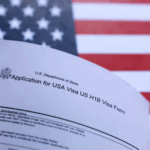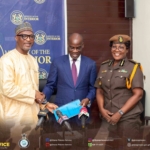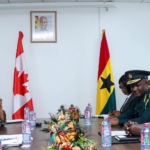
Global Travel Hypocrisy: Africa’s visa hell, gouged airfares, and unsafe planes.
In the annals of global inequity, few phenomena are as brazenly hypocritical as the visa regimes governing travel between Africa and the rest of the world.
Africans face a labyrinth of bureaucratic hurdles, exorbitant fees, and arbitrary denials when seeking to visit Europe, North America, Asia, or Australia often for legitimate purposes like education, business, or family reunions.
Yet, when citizens of those very regions turn their gaze southward, they encounter stringent restrictions, biometric screenings, and sometimes outright bans on entering African nations. This is not mere coincidence; it is a systemic rip-off, a double standard that perpetuates colonial legacies and economic exploitation.
What follows is a unflinching examination of this injustice, from visa nightmares to the deplorable state of air travel on African routes. It is time to call out the hypocrisy and demand accountability.
Let us begin with the visa farce. For an African passport holder be it from Ghana, Nigeria, Kenya, or South Africa the prospect of obtaining a visa to the United States or the European Union is akin to scaling Mount Everest in flip-flops.
African passports consistently languish at the bottom of almost all the notable passport ranking institutions. A Nigerian, for instance, requires visas for 101 countries, while a British citizen can waltz into 185 without so much as a stamp.
The fees are astronomical: a US tourist visa for an African can cost upwards of $160, plus mandatory biometric appointments that add hundreds more in travel and processing costs. And this is before the arbitrary rejections without explanation based on nebulous criteria like “economic ties” or “intent to immigrate.”
Contrast this with the barriers erected against non-Africans entering the continent. Many African countries, scarred by historical exploitation and security concerns, impose reciprocal visa requirements. A European or American tourist might need a visa for Kenya or Morocco, complete with health certificates, proof of onward travel, and sometimes even a letter of invitation.
In extreme cases, like Eritrea or Sudan, entry is virtually impossible without special permits. Yet, this is framed as “necessary” for national security, while Africa’s citizens are treated as presumptive criminals abroad. The hypocrisy is staggering.
The African Union has repeatedly called for visa-free travel within the continent to boost intra-African trade, but external powers resist, fearing a “brain drain” or “migration crisis.” In reality, it is a mechanism to control African mobility, ensuring that talent and labour flow outward while inward flows are curtailed.
Data from the International Organisation for Migration shows that Africans make up a tiny fraction of global migrants less than 10% yet they bear the brunt of restrictive policies. This is not balance; it is exploitation.
The rip-off extends to airfares, where Africans are fleeced for the privilege of international travel. Ticket prices from Africa to Europe or North America are often double or triple those in the reverse direction.
A one-way flight from Lagos to London might cost $1,200, while the return from London to Lagos is $600—despite identical distances and fuel costs. This disparity persists even on budget carriers like Ryanair or EasyJet, which offer fares as low as €50 within Europe but charge Africans premium rates.
Why? Airlines cite “market dynamics,” but the truth is monopolistic pricing in a continent with limited competition. African carriers like Ethiopian Airlines or Kenya Airways dominate regional routes, but international flights are dominated by European and American giants that impose surcharges under the guise of “security fees” or “fuel adjustments.
Africans pay an average 40% premium on long-haul flights, translating to billions in annual overcharges. This is not just unfair; it is a tax on aspiration, disproportionately affecting the middle class and students who dream of global opportunities.
But the real outrage lies in the quality of travel on African routes. Passengers plying these skies are subjected to rickety, uncomfortable aircraft that would be grounded in Western skies, yet they pay top dollar for the privilege.
Many African airlines operate ageing fleets Boeing 737s and Airbus A320s that have clocked hundreds of thousands of hours, with worn interiors, faulty air conditioning, and seats that recline with the grace of a rusty hinge. Safety records are improving, thanks to ICAO oversight, but comfort is an afterthought.
A flight from Johannesburg to Nairobi might involve a cramped economy cabin with no in-flight entertainment, meagre meals, and turbulence that feels like a rollercoaster ride. And the prices? Exorbitant.
A domestic flight within Africa can cost as much as a transatlantic one, despite shorter distances. This is not mere inefficiency; it is a deliberate fleecing of passengers who have few alternatives. In my fieldwork, I interviewed travellers who described flights as “cattle transports,” with overbooking leading to stand-by passengers stranded at airports.
Poor customer service compounds this misery. African airlines, often state-owned or monopolistic, treat passengers with disdain. Delays are routine flights from Accra to Dakar might be postponed for hours without compensation or explanation.
When items are lost in transit, the process to reclaim them is a bureaucratic nightmare, involving endless forms and negligible reimbursements. First-time travellers, especially those venturing abroad for the first time, are particularly vulnerable.
Connecting flights are poorly coordinated; a missed layover in Addis Ababa can leave a novice stranded in a foreign city, without adequate assistance from the airline.
I recall a harrowing account from a Zimbabwean student en route to the US: her luggage vanished in Nairobi, and after days of pleading, she received a voucher worth a fraction of her losses. No apologies, no empathy just indifference. This is not service; it is exploitation, preying on the inexperienced and desperate.
To be fair, there are mitigating factors. Africa’s aviation sector faces unique challenges: vast distances, underfunded infrastructure, and geopolitical tensions that inflate costs. The COVID-19 pandemic exacerbated delays, with airlines citing supply chain disruptions.
Some carriers, like RwandaAir, have invested in modern fleets and improved service, offering competitive fares and better amenities. And visa restrictions are not entirely one-sided; African nations like Rwanda and Mauritius have introduced e-visas to ease entry for tourists, boosting economies.
Yet, these positives do not excuse the systemic unfairness. The double standards in visa policies reflect a neo-colonial mindset, where African mobility is curtailed to protect Western interests. Similarly, the pricing and service disparities stem from a lack of regulatory oversight and competition, allowing airlines to operate as cartels.
This rip-off has profound implications. It stifles economic growth, as Africans are barred from global networks of trade and innovation. It perpetuates stereotypes of Africa as a “dangerous” or “backward” continent, justifying discriminatory policies.
And it harms individuals: families separated by visa denials, students denied education abroad, entrepreneurs unable to attend conferences. As a thought-provoking opinion piece, I pose this question: how can the world claim to champion equality while maintaining such blatant inequities? The answer lies in reform.
The African Union should push for reciprocal visa liberalisation, mirroring agreements like the Schengen Area. Airlines must face antitrust scrutiny, with caps on fares and mandates for better service.
Passengers deserve transparency, compensation for delays, and robust protections for lost items. Governments should invest in aviation infrastructure, from modern airports to trained staff.
Conclusion
The African travel experience is a microcosm of global injustice a rip-off that demands our outrage and action. It is time to dismantle them, not with platitudes, but with concrete change. Africa deserves better: fair visas, affordable fares, and dignified travel.
The world must listen, or risk perpetuating a legacy of exploitation that benefits no one. Let this article be a clarion call for equity in the skies and on the ground.
The African travel saga exposes a brutal global double standard: Africans grapple with labyrinthine visas, exorbitant fees, and arbitrary denials to the rest of the world, especially the Global North, while outsiders hit walls entering Africa.
Airfares bleed them dry, planes are rickety relics with abysmal service, lost luggage haunts them, and first-timers get stranded on botched connections. This isn’t oversight, it is exploitation rooted in colonial legacies. Reform now: fair visas, capped fares, and real accountability, or the world forfeits its claim to equality.
About the Author:
Dominic Senayah, an International Relations Researcher who dives deep into the realms of Trade, Migration, and Diplomacy. With a rich background in Business Development and Marketing Communications, I bring a unique perspective to my analysis of global issues. My goal is to enrich academic discussions and enhance public understanding of the intricate dynamics that shape international relations.




